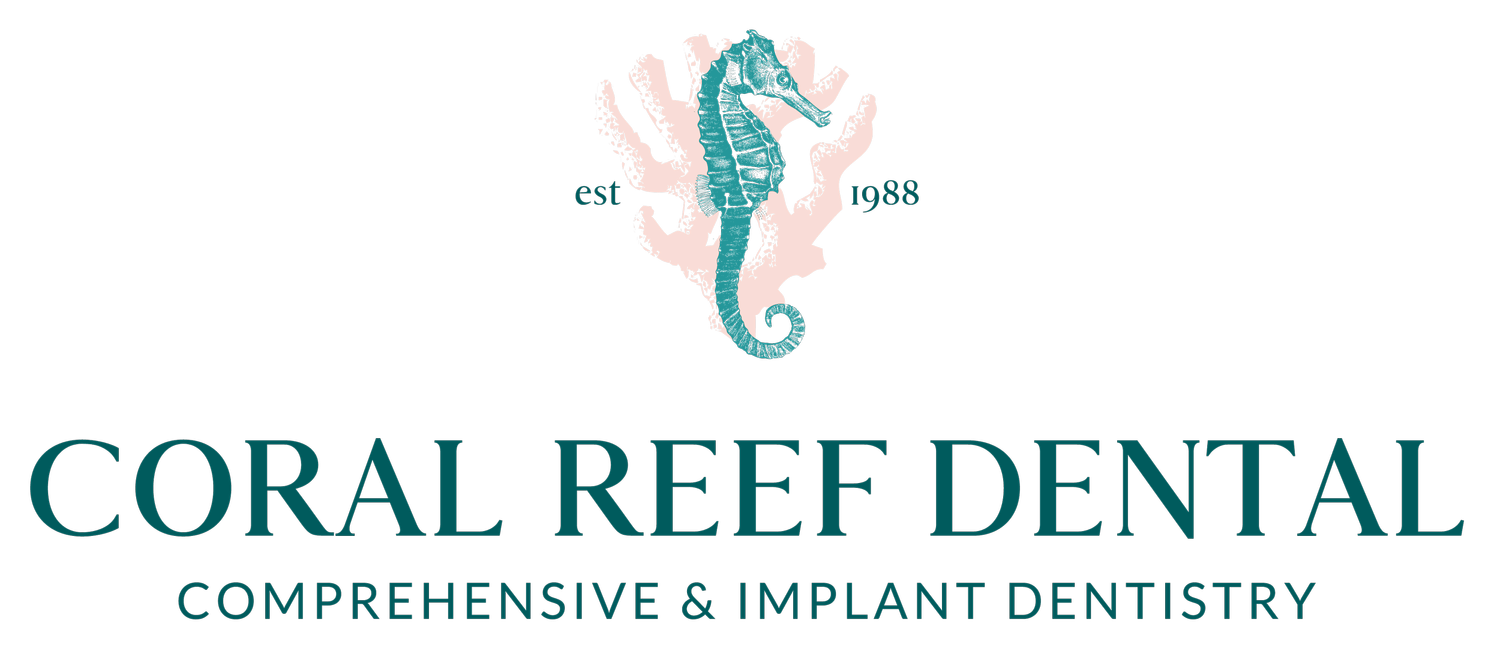What Is an Occlusal Guard?
Waking up in the morning with pain in your jaw is a good sign that you might need an occlusal guard.
Used to protect the chewing surfaces of your teeth while sleeping, they’re an essential tool to protect your teeth.
Today, we’re looking at how a night guard can help relieve mouth pain.
What are the uses of occlusal guards?
Sometimes called bite splints, these oral appliances protect the surfaces of your teeth from damage while sleeping. They can be soft or hard and can be made to fit the top or bottom row of your teeth. While some people use custom night guards, there are several on the market that you can shape yourself.
Occlusal guards are usually prescribed to treat jaw pain related to bruxism or teeth grinding and clenching at night. They also alleviate TMJ pain in those with the jaw disorder.
Mouthguards don’t stop you from grinding or biting down in your sleep. But they do help relieve pain.
Teeth grinding is the most commonly treated symptom by mouth guards
Bruxism, or teeth grinding, is the most common symptom people use occlusal guards for. Stress is frequently a factor in those who only experience this phenomenon occasionally. But those who suffer from it long term can see severe damage to their teeth.
Jaw pain can be helped out by mouth guards
TMJ disorders are painful joint conditions that affect the jaw. Using a night guard can keep things in place. Additionally, gritting your teeth can place unnecessary strain on the muscles in the jaw. Using a guard keeps your teeth from coming into contact and absorbs some of the force, reducing muscle pain.
While some people use one on their lower teeth, most fit your upper teeth.
Sleep is massively improved with night guards
Sleep apnea and snoring are hugely disruptive to normal sleep patterns. We can trace these troubling issues back to oral or dental problems. Mouth guards keep your jaw in the optimal position, reducing stress. Using one opens the airway, reducing the symptoms of snoring and sleep apnea.
The different types of occlusal guards
Choosing the right occlusal guard for your needs doesn’t have to be complicated. There are several materials used for the different types available.
Soft nightguards treat mild symptoms
Mild or occasional symptoms only need a soft appliance. Often, these are easily found at drugstores or online. Because they’re more malleable, you don’t need to custom-fit them to your mouth. Getting them right isn’t a chore, but it’s worth it.
Generally speaking, a soak in warm water softens the material. Then, put it in your mouth and bite down so it molds to your teeth.
Dual laminates are good for moderate symptoms
Dual laminate guards work best for moderate tooth grinding and light jaw clenching. With a soft inner layer and harder outer coating, they stand up to some biting and grinding. Because they’ve got a hard outer layer, you can get them custom-made to fit your mouth.
Severe cases require hard night guards
If you’re a severe bruxer, you may need a hard night guard to protect your teeth and relax your jaw. These must be a perfect fit for your teeth. You can get them from your dental care provider or online with an impression kit. They’ll fit much tighter than those made of other materials but can withstand heavy bite forces.
How to care for your occlusal guard
Using your night guard regularly is essential to treat your symptoms. But, if you don’t clean it properly, you could compromise your oral health.
Here are our tips to keep yours in top shape.
Do not mix your guard with hot water
Hot water can degrade the materials used in manufacturing, so don’t rinse them with hot water. Instead, use warm water to remove debris or plaque after each use. You should also brush your guard with a toothbrush.
Some like to use a separate one than they use for their teeth, but that’s not necessary. Don’t use toothpaste because it’s frequently abrasive. Castille soap or a small amount of dish soap is better to clean your mouth guard.
Keep your mouth guard in a plastic case
Once cleaned and dried, store your mouth guard in a plastic case. This protects it and helps it keep its shape. While you might think the bathroom is an excellent place to store yours, the humid environment causes it to warp. Instead, keep it on your nightstand so you always know where to find it and to prevent damage.
Keep it away from your pets, too. They love expensive new chew toys!
Consult with your dentist about your mouth guard for any questions
If you’re experiencing any issues with your occlusal guard, check with your dental office. Things like headaches, jaw pain, and tooth discomfort are all signs that it could be a poor fit. Additionally, poorly made guards can make breathing difficult and increase asthma symptoms.
Coral Reef Dental can provide you with the perfect occlusal guard
At Coral Reef Dental, we know how vital good sleep is to your overall health. Using a night guard that’s not fitted to your needs can cause more problems! We work with high-quality vendors to supply you with the best occlusal guards. With the right appliance in place, you’ll sleep easier and ensure you’re not causing damage to your smile.
Check out our website to schedule an appointment with our team today!


